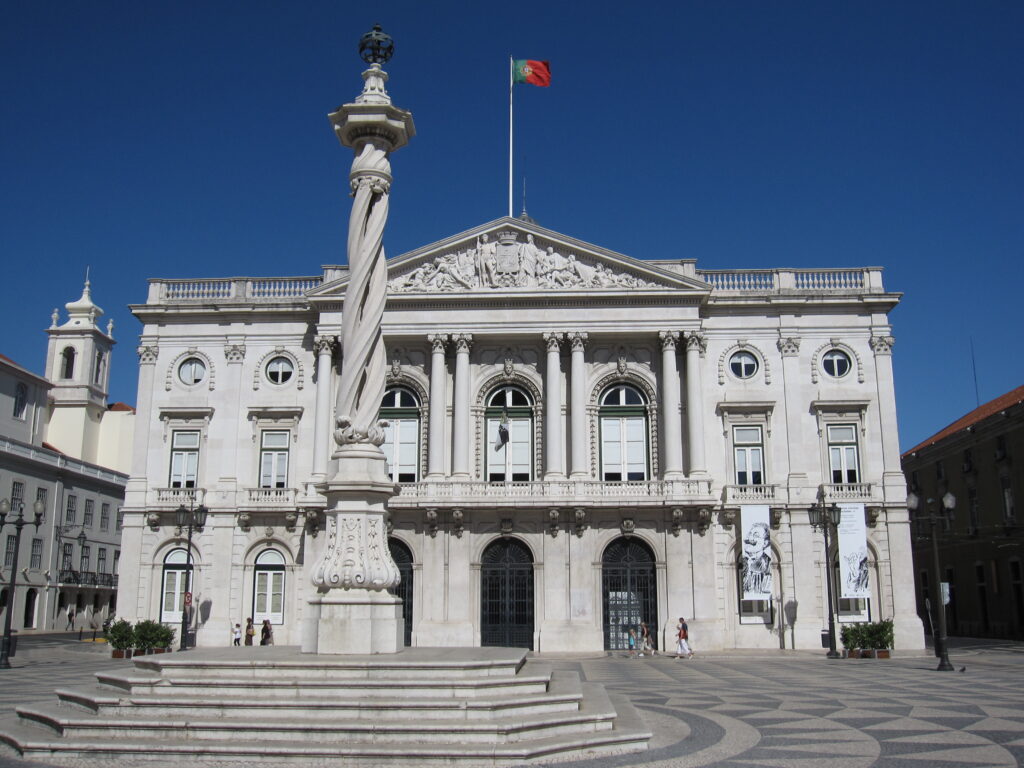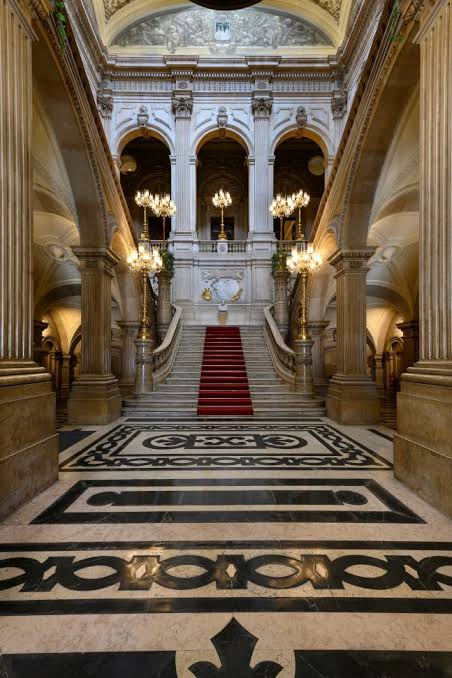
Lisbon Town Hall: A Beacon of Governance and Community
Introduction: A Hub of Civic Life
In the heart of any town lies a symbolic center of governance and community, and Lisbon is no exception. The Lisbon Town Hall, often referred to as the “Câmara Municipal de Lisboa” in Portuguese, stands as a prominent institution that shapes the city’s identity, heritage, and daily life. This article will delve into the rich history, architectural significance, civic functions, and community impact of Lisbon’s Town Hall.
A Historical Gem: The Evolution of Lisbon Town Hall
The history of the Lisbon Town Hall is a captivating narrative that mirrors the city’s journey through time. The origins of this remarkable institution can be traced back to the 13th century when Portugal was emerging as a kingdom. The first town hall, or “Paços do Concelho,” was established during the reign of King Dinis I, making it one of the oldest municipal buildings in the country.
Over the centuries, the Town Hall underwent numerous transformations and renovations to adapt to the changing needs of the city and its citizens. Each architectural iteration, from medieval grandeur to Baroque opulence, left an indelible mark on Lisbon’s urban landscape.
One of the most iconic phases in the building’s history was its reconstruction following the devastating earthquake of 1755. The Town Hall, like the city itself, rose from the ashes with a renewed sense of purpose. The neoclassical design that emerged during this period is a testament to the resilience of both the building and the people of Lisbon.
Architectural Splendor: Neoclassical Grandeur
The Lisbon Town Hall’s neoclassical architecture is a breathtaking sight that draws visitors and locals alike. Designed by the renowned architect Eugénio dos Santos, the building showcases the timeless elegance of this architectural style. The symmetrical façade, adorned with graceful columns and ornate detailing, exudes an air of grandeur and sophistication.
One of the most striking features of the Town Hall is its impressive clock tower. The clock, with its meticulous craftsmanship, has become an iconic symbol of Lisbon. Its hands tirelessly mark the passage of time, serving as a constant reminder of the city’s history and progress.
As visitors step inside the Town Hall, they are greeted by a spacious and majestic interior. Marble floors, intricate frescoes, and stately corridors all contribute to the building’s aura of dignified elegance. The council chamber, where important decisions are made, is a captivating space adorned with woodwork and artwork that pays homage to Portugal’s rich cultural heritage.
Civic Functions: Governance and Beyond
The Lisbon Town Hall serves as the administrative heart of the city, responsible for a myriad of municipal functions. Its role extends far beyond its neoclassical façade; it is where local governance comes to life.
One of the primary functions of the Town Hall is to oversee and manage the various services that keep Lisbon running smoothly. This includes urban planning, transportation, public safety, and cultural affairs. The Town Hall’s various departments work diligently to address the needs and concerns of the city’s residents.
The City Council, presided over by the Mayor, meets regularly in the Town Hall to deliberate on matters of public interest. These meetings are open to the public, allowing citizens to witness the democratic process in action and voice their opinions on critical issues.

Community Engagement: A Space for Citizens
Beyond its administrative functions, the Lisbon Town Hall plays a crucial role in fostering community engagement and civic participation. It is a space where the city’s residents can interact with their elected officials, express their concerns, and actively contribute to the development of their beloved Lisbon.
Public hearings and town hall meetings are common occurrences in the Town Hall, providing a platform for citizens to voice their ideas, opinions, and grievances. These gatherings promote transparency and accountability, ensuring that the city’s decision-making process remains inclusive and representative of its diverse population.
The Town Hall is also a venue for cultural events and exhibitions that celebrate Lisbon’s artistic heritage. It hosts a diverse array of activities, from art exhibitions and musical performances to historical lectures and educational workshops. These events enrich the cultural tapestry of the city and bring the community together in celebration of its artistic and historical legacy.
Preserving Heritage: A Living Monument
The Lisbon Town Hall is not merely a relic of the past; it is a living monument that actively preserves the city’s heritage. Its commitment to historical preservation is evident in the meticulous care taken to maintain the building’s architectural integrity and historical significance.
Visitors to the Town Hall can explore its historical archives, which house a treasure trove of documents, maps, and records that chronicle Lisbon’s evolution over the centuries. These archives are invaluable resources for historians, researchers, and anyone interested in delving into the city’s past.
The Town Hall also participates in heritage conservation initiatives, ensuring that Lisbon’s architectural and cultural legacy is safeguarded for future generations. It collaborates with local historical societies, preservationists, and academic institutions to promote the importance of heritage preservation within the community.
Conclusion: A Beacon of Lisbon’s Soul
In the heart of Lisbon, the Town Hall stands as a testament to
the city’s enduring spirit and resilience. Its neoclassical façade and historical significance are more than architectural features; they are symbols of Lisbon’s rich heritage and democratic ideals.
Beyond its administrative functions, the Town Hall serves as a space where citizens can actively engage with their government, celebrate their cultural heritage, and shape the future of their beloved city. It is a living monument that continues to inspire, educate, and unite the community it serves.
As Lisbon continues to evolve and grow, the Town Hall remains a steadfast anchor, a beacon that guides the city toward a future where the principles of democracy, transparency, and cultural preservation continue to thrive. It is not merely a grand architectural masterpiece but a living testament to the principles that underpin Lisbon’s identity.
In conclusion, the Lisbon Town Hall is more than just a government building; it is a symbol of Lisbon’s soul. It embodies the city’s history, celebrates its culture, and invites its citizens to actively participate in shaping its future. As a beacon of governance and community, the Town Hall stands as a testament to the enduring values and aspirations that make Lisbon a vibrant and dynamic metropolis. It will continue to be a cherished space where the past, present, and future converge, ensuring that Lisbon remains a city of beauty, culture, and civic engagement for generations to come.